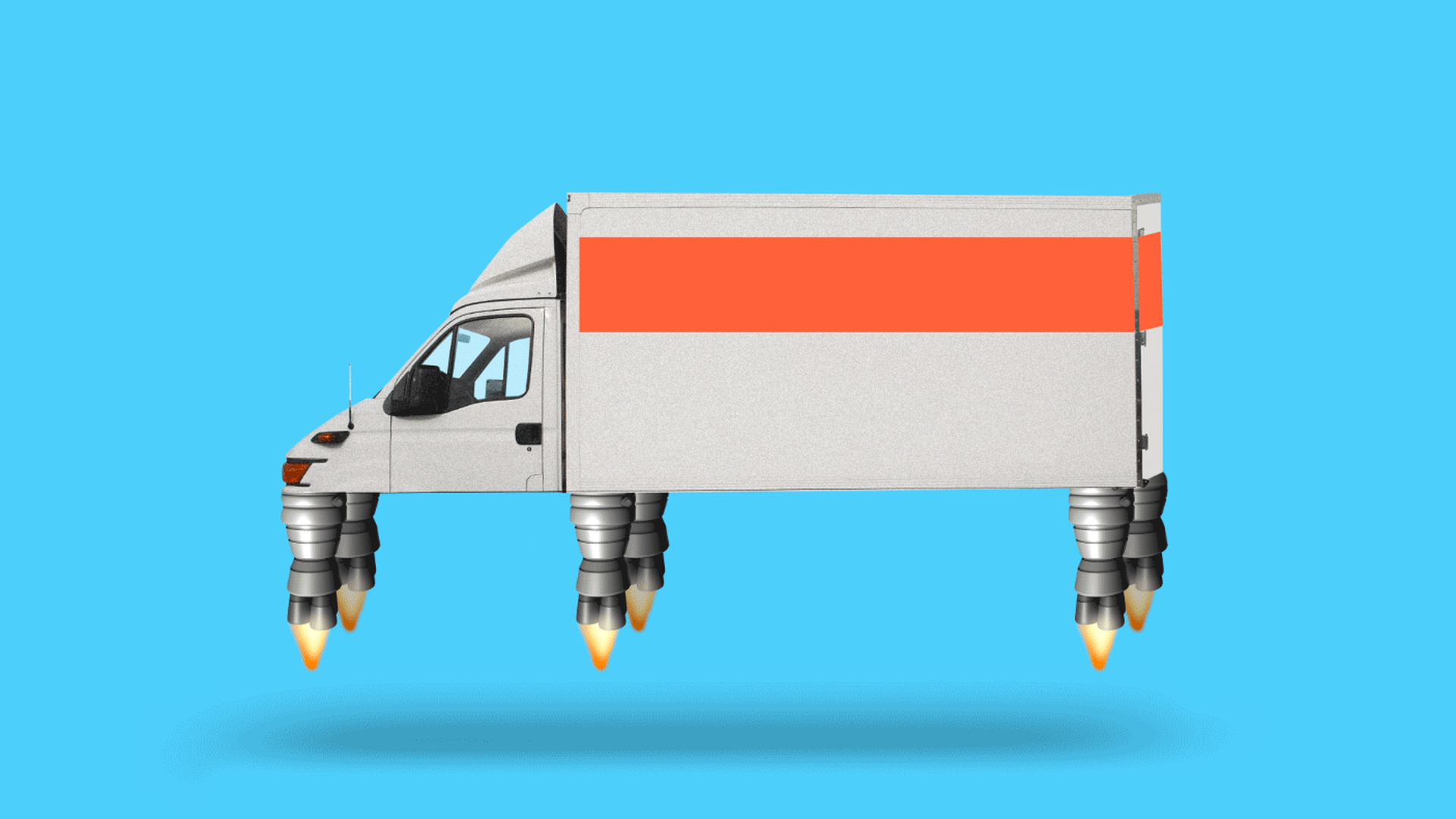The Future of Moving

Moving companies, a $25 billion business in the U.S., look like an upcoming target for disruption.
Why it matters: Technology has made dozens of tasks easier: We can use GPS for road trips instead of printing out directions, we can order our groceries online and get them delivered, and we can even meet our spouses on apps. But moving still sucks.
The big picture: As we've reported, Americans are generally moving less. But young people — especially those living in cities — are bucking this trend.
- "The share of 25- to 34-year-olds who have lived in their current home for less than two years rose from 33.8% in 1960 to 45.3% in 2017," per Zillow.
- "Younger folks are moving a lot more often and longer distances," says Ryan Carrigan, co-founder of moveBuddha, a platform that compares moving company prices for customers. "We’re like city-hoppers."
What's happening: There is a slew of inefficiencies within the moving industry. For example, there are more than 8,000 moving companies in the U.S. because most of them only serve small regions.
- "Moving forever has been really hard to expand in the country because managing the labor is so difficult," Carrigan says. So people looking to move across the country have to work with multiple firms.
- On top of that, the types of moves companies are equipped to handle — large-scale operations that involve transporting entire houses' worth of furniture — are becoming outdated. Not only are young people moving more often, they're also doing smaller moves (with less stuff), says Carrigan. So they often don't need all the services that come with hiring a traditional moving company.
- To that end, young people are using a patchwork of apps and traditional moving companies to orchestrate piecemeal moves. That could include hiring a TaskRabbit to help disassemble a bed, finding a buyer for the mattress on an app like LetGo or Facebook Marketplace, and renting a truck to transport the frame.
Some companies are picking up on the shifts.
- Bellhops, a Tennessee company, offers a clean app and site to instantly book only what you need, whether that's a helper or a truck or an entire moving team. Their slogan is "Imagine if moving were fun," and while traditional movers have trouble scaling, Bellhops' platform is available in almost every major U.S. city.
- Lugg, another startup, uses an app to get the truck of your choice and two "Luggers" to your door within 15 minutes.
- BuddyTruk offers a similar service for big delivery jobs — like picking up a couch from the store — which usually come with skyrocketing costs and take the better part of a day.
The bottom line: "Uber-izing moving will continue to be a very interesting trend," Carrigan says. "It’s the standard tech story: using tech to cut out the cost, the middle man."
- Yes, but: The Uber model also turns jobs into gigs. If it takes over the moving industry, scores of full-time movers may be pushed to bid for work.
Go deeper: Where American city-dwellers want to move
from Hacker News https://ift.tt/2RLqNCe